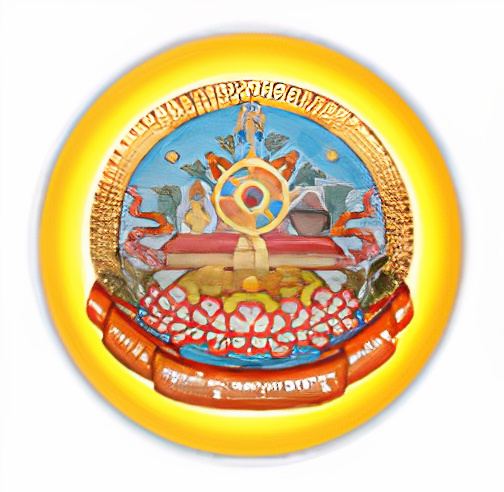
In the spiritual path of Tibetan Buddhism, one practice stands out as both timeless and deeply transformative — the Sojong Puja, a sacred ritual of confession and purification. Though its form may seem simple, its essence carries profound significance for practitioners striving to live ethically, grow spiritually, and maintain harmony within the monastic and lay communities.
Rooted in the Vinaya, the monastic code of discipline, Sojong Puja is not merely a ceremony — it is a lifeline for moral integrity and a tool for deep inner renewal.
What Is Sojong Puja?
Sojong (Tibetan: གསོ་སྦྱོང་, pronounced “so-jong”) is a combination of two words:
-
“So” meaning “to restore”
-
“Jong” meaning “to purify”
Together, they signify the restoration of ethical vows and the purification of moral and karmic impurities. Performed on the 15th and 30th days of each lunar month — aligned with the full moon and new moon — Sojong is an integral practice among Tibetan monastic communities and is open to lay practitioners who wish to participate with sincerity.
The Purpose of Sojong: A Spiritual Reset
Sojong Puja serves multiple layers of purpose:
1. Purification of Negative Karma
In Buddhist philosophy, all actions of body, speech, and mind generate karma. When unskillful or harmful actions are committed, they leave imprints on the mindstream that can ripen into future suffering. Sojong allows practitioners to purify these imprints before they manifest as negative results. Through confession, regret, and resolve, karma can be weakened or even neutralized.
2. Restoration of Vows and Ethical Discipline
For monks and nuns, keeping vows is the foundation of spiritual life. However, even with the best intentions, vows can be broken or weakened. Sojong gives them the chance to restore their vows with renewed mindfulness. For lay practitioners who uphold precepts (such as the Eight Mahayana Precepts), it is a means to reflect and recommit.
3. Mental and Emotional Clarity
Holding onto guilt, shame, or unacknowledged mistakes can cloud the mind and block spiritual growth. The act of confession in Sojong isn’t meant to induce guilt — it’s an act of release, humility, and truthfulness, allowing practitioners to face their flaws without judgment and start anew.
4. Collective Harmony in the Sangha
Sojong is often performed in community. When monks or practitioners gather to confess and purify together, it fosters a sense of collective accountability and harmony. It helps maintain a pure environment where the Dharma can flourish and individuals support each other on the path.
What Happens During Sojong Puja?
While the exact structure may vary slightly from monastery to monastery, the general process includes:
-
Refuge and Bodhicitta Prayers: Reaffirming reliance on the Buddha, Dharma, and Sangha, and generating the intention to practice for the benefit of all beings.
-
Recitation of Precepts: The monastic rules (Pratimoksha) are recited aloud. This helps renew awareness of one's commitments and responsibilities.
-
Confession and Repentance: Participants reflect on misdeeds they have committed, confess them internally, and express genuine regret.
-
Resolution Not to Repeat: With mindfulness and remorse, practitioners make a heartfelt vow to avoid repeating the same mistakes.
-
Dedication of Merit: Any positive karma generated through the ritual is dedicated for the benefit of all beings, strengthening the altruistic spirit of the practice.
Sojong in Daily Life: Not Just for Monks
Although rooted in the monastic tradition, the principles of Sojong can be practiced by anyone. You don’t need to live in a monastery or hold full ordination to engage in confession and purification. In fact, lay practitioners are encouraged to do regular self-reflection, especially on auspicious lunar days.
Personal Sojong practices can include:
-
Writing down or mentally reviewing missteps in thoughts, words, or actions.
-
Practicing sincere regret and a promise to improve.
-
Reciting purification mantras (like Vajrasattva’s 100-syllable mantra).
-
Making offerings or engaging in compassionate acts to purify negative karma.
The Deeper Importance of Sojong: A Path to Liberation
In the grand vision of Buddhism, the ultimate goal is liberation from suffering and the cycle of rebirth (samsara). Sojong Puja plays a vital role in this journey. By continuously purifying our minds, repairing our ethical commitments, and aligning our intentions with compassion and wisdom, we begin to untangle the knots of ego, ignorance, and attachment.
Without purification, spiritual practice becomes superficial. But with regular Sojong, we are constantly course-correcting — returning again and again to the heart of the path: truth, discipline, and inner freedom.
Conclusion: The Gift of Beginning Again
The Sojong Puja reminds us of a truth both simple and profound: we will make mistakes, but we can always begin again. With every confession comes clarity. With every purification comes lightness. And with every restoration of vows comes strength to walk the path forward.
In a world that often emphasizes punishment or perfection, Sojong offers something far more healing — the grace of acknowledgment, forgiveness, and spiritual renewal.
So whether you’re a monk in the high Himalayas or a layperson in a bustling city, Sojong stands as an invitation: to reflect, to release, and to rise again — cleaner in conscience, clearer in mind, and kinder in heart.

